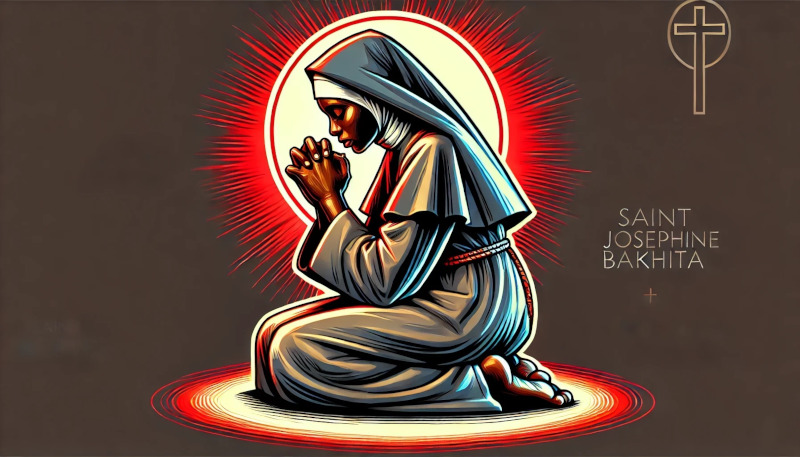
Holy coincidences in the Canossian Institute
There are two dates that seem like coincidences in the history of the Canossian Institute: both the foundress Magdalene of Canossa and Bakhita were canonized, 12 years apart, in October: the former on the 2nd and the latter on the 1st
Canossian Sister Liliana Ugoletti’s commentary is, today, still relevant and, on the day dedicated to St. Bakhita and trafficking against human beings, offers us food for thought
(by Sister Liliana Ugoletti, Canossian)
Chronology, the distances of time and space do not extinguish the intensity and steadfastness of ties, nor the vitality of memory, when it comes to events that touch your family.
Twelve years later, with the Canonization of Bakhita, the same hymn of praise was celebrated that crowned St. Magdalene of Canossa with glory on October 02, 1988.
Spontaneous was the joke upon the announcement of the date of the new Saint in House Canossa:
“But how, in the calendar of Saints, does the Daughter precede the Mother?”
As usual, we, lovers of logic, forget that in the habitat of the “blessed” there is neither before nor after. The pure in heart all have clean hands and can safely and indiscriminately sit at the table of the Great Banquet.
Without thinking of the Mother’s satisfaction in seeing her own daughter towering over the world, not because she shouted to convince, not because she advertised dazzles to attract, but because by her simplicity, modeled after the example of the “Paron,” she was able to translate even the most challenging notes of the Gospel into melodious music.
An instrument in the original orchestra of life, where we all have our own piece to play.
October is, then, a pleasant coincidence and not the only one for the two women of the beatitudes.
Two stories, in the story so far apart: the noblewoman and the slave girl intersect right there, in those passages that prepare for the ‘wholeness of life, where Love is privileged, where every choice is in peace and for peace.
It is indeed true that when man tries to fly high, everything that binds him to human misery no longer makes sense!
If a thrill of electricity runs through the body thinking about the brutality that kidnapped the happiness of the little African girl, we cannot even underestimate that Magdalene, too, at only five years old, had to experience the sadness and emptiness of her dearest affections.
Bakhita, the “Fortunata,” spends her adolescence and youth chained in her body by ever-thicker rings: the young, noble Canossa, in quite a different atmosphere, divines herself and defends herself from elegant and sophisticated laces.
If the one must endure in order not to succumb to hunger, fatigue, torture,
the other must constantly purify herself from the pollution of wealth, from the hubbub of a frivolous world, lest the anxiety of the search for those “whys” that motivate life fail.
For both there is “finally,” the embrace with God, with “el Paron,” in a context that is anything but sweet or ecstatic, as we often think saints have.
“God alone” is manifested to Magdalene in the singular gifts of loving-kindness, generosity, patience of which the Son, Jesus Crucified, is the exclusive interpreter. Coincidentally, these are the same qualities that rhythm and enhance Bakhita’s daily life.
She does not yet know the Lord in her African homeland, but inside He is already hers.
Wealth and poverty meet and question each other:
“Who is this Lord who lights the Stars in heaven?”
“Look and do….”
First one, then the other abandon themselves to the mystery: in humility and poverty they become servants of the poor.
It is not difficult for Mother Josephine Bakhita to become attuned to this spirituality. She, the truly poor, inwardly free and open to grace; she, the truly humble, who, in a gentle and peaceful way, recognizes everywhere the merciful goodness of the Lord of the world.
Magdalene and Bakhita allow themselves to be educated by the “Master” of life and in continuous detachment, silence and prayer are concerned about his Glory: that he be known and loved.
If Magdalene Foundress is the soul of the Canossian charism, Mother Josephine Bakhita, the first African Sister in Sudan, is the most eloquent sign of missionary universality.
“Freely you have received, freely give….”
Thanks to them, we are given to cross the threshold of the third millennium with that zeal of charity that transforms, strengthens, and enables unthought-of things.
